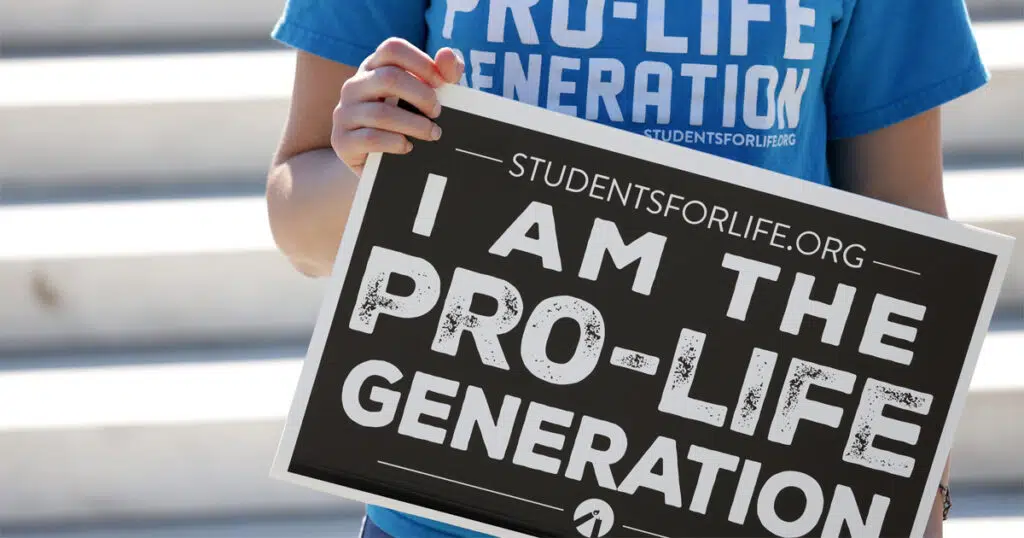
Pro-Life Group Describes Tremendous Growth, Success Post-Roe: ‘It’s Easier to Recruit People’
When Roe v. Wade was finally overturned—a victory that pro-life advocates had been striving toward for decades—40 Days for Life President Shawn Carney expected that his organization would probably shrink considerably. But he was underestimating the impact that the monumental June 2022 Supreme Court decision would have on the American public, he said in an interview with The Daily Signal.
“This is the best moment in the history of our movement,” Carney insisted. “We have more momentum. We have more people on our side.”
40 Days for Life, which has been operating since 2007, shared with The Daily Signal that it was operating in 555 cities around the world in the spring of 2021. As of this month, the organization is in 681 cities. 40 Days for Life says it has seen a 126 “city surge” since Roe v. Wade was overturned.
The group, which describes itself as “the world’s largest grassroots movement to end abortion,” says that is has saved over 23,525 unborn lives since then—and 1,733 of those babies have been saved since the Dobbs v. Jackson Women’s Health Organization decision overturning Roe.
Members of 40 Days for Life participate in 40 days of prayer and fasting against abortion described as “a focused, 40-day, non-stop, round-the-clock prayer vigil outside a single Planned Parenthood center or other abortion facility in your community.”
“It is a peaceful and educational presence,” the organization’s website says. “Those who are called to stand witness during this 24-hour-a-day presence send a powerful message to the community about the tragic reality of abortion.”
The last abortion clinic was closed in 14 cities where 40 Days for Life gathered for its vigils, according to the organization: Boise, Idaho; Baton Rouge and New Orleans, Louisiana; Jackson, Mississippi; Tulsa, Oklahoma; McAllen and McKinney, Texas; Alamosa and Grand Junction, Colorado; Pensacola and Boca Raton, Florida; South Bend, Indiana; Mt. Juliet, Tennessee; and Cedar Falls, Iowa.
“We work closely with the pregnancy resource centers,” Carney explained. “We’re out there at the vigils, the woman is thinking of an abortion, she sees us, decides to turn around, and then we send them to the pregnancy resource center.”
And now, post-Dobbs, the organization is finding that it is easier to recruit volunteers, according to Carney: “We’ve proven ourselves to be law-abiding, to be peaceful, to be loving and compassionate.”
“When you look at the history of the pro-life movement, we now have more women who speak out against abortion, who had an abortion,” he explained. “We have a record number of abortion doctors who have quit doing abortions or have had a conversion … we are at the peak—and it is still going up—of Planned Parenthood workers who have gotten out of the abortion industry.”
Carney speculated that the pro-life movement is currently at “an all-time high,” noting how hard it was for pro-life activists to get their message out before Democrats unabashedly embraced unlimited abortion.
“It was hard in the ’90s and early 2000s with Clinton basically giving good people permission to be pro-choice by saying, ‘I want it safe, legal, and rare.’ That was hard,” he said with a laugh. “It’s easy now. They’re now saying men can have abortions. Apologetics-wise, is it is easier to win a mind and a heart for life in 2023 than in the history of our country.”



